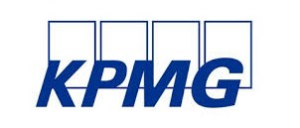Let’s not expect a Christmas surprise from the CNB
16.12.2020Company: Amcham
The Czech National Bank (CNB) is likely to keep interest rates unchanged after its December meeting. Although the economy performed better in 3Q than the CNB had forecast, the pandemic is keeping uncertainty elevated. An increase in interest rates due to higher inflation could disrupt the country’s already tested financial stability. According to the CNB, the planned income tax reduction next year is not a reason to raise rates. Our baseline scenario is that rates remain at current levels until end-2021. Continued resilience in the industrial sector and rapid vaccination of the population could lead to higher rates in 2H21.
The CNB is likely to leave interest rates unchanged at its Thursday meeting. We thus expect the two-week repo rate to remain at 0.25%, in line with consensus. The December meetings are mostly used to assess current economic developments, and changes in monetary policy stance are a rare exception. The last time the central bank changed interest rates in December was 2009. As year-end approaches, liquidity on the FX market decreases, and unexpected twists in monetary policy could lead to significant exchange rate fluctuations. Yet, we have seen this in recent years, with foreign investors closing their koruna positions at year-end while domestic banks pushed to drop koruna deposits to reduce their contribution to the Resolution Fund. We could see something similar this year.
Better developments in 3Q offset by threat of a third wave
Domestic economic developments were better in 3Q than the CNB had expected. According to the CZSO's revised estimate, Czech GDP grew 6.9% qoq, while the central bank had forecast an increase of 4.4%. Foreign trade fared significantly better than the CNB expected, while investments and government consumption underperformed. Household consumption grew roughly in line with the CNB’s expectations. The stronger recovery in economic activity in 3Q was also reflected in higher wage growth. The CNB expected annual growth in average monthly wages of 4.5% in nominal terms and 1.2% in real terms, vs the reported figures of 5.1% and 1.7%, respectively. Inflation slowed slightly in 3Q, as the CNB predicted. However, it remained close to 3%, which is also the upper limit of the tolerance band around the CNB's 2% target. The core component, where growth was slightly below 4%, continued to be the main contributor to higher inflation.
The government’s proposal to reduce income taxes for next year is not a reason to hike interest rates, according to central bankers. However, together with the more favourable economy developments in 3Q, it is a reason not to consider further monetary easing for now. It is not completely certain that the proposed tax cuts will pass. After discussions in the Senate, the tax package was returned to the lower house of Parliament with amendments, which will probably be approved. However, President Zeman has expressed his opposition to the government’s proposal, so there is no guarantee that he would sign it into law.
The pandemic remains the main reason for the continued stability of interest rates. After a recent loosening of pandemic measures, a third COVID wave has emerged on the horizon. Although the loosening was too recent to have an effect now, the number of new infections is on the rise. The financial situation of many companies has deteriorated significantly as a result of the long-term fight against COVID-19, and each subsequent wave puts them at greater risk. The CNB already adopted a series of measures to help strengthen financial stability (e.g. reducing the countercyclical capital buffer from 2% in February to the current 0.5%) and it is unlikely to risk further distortions by raising interest rates prematurely.
Interest rates to remain low for much of 2021
Our base case forecast is for monetary policy interest rates to remain stable until end-2021. The aforementioned third wave could keep the economy weak in 1H21, and new cases continue to rise steeply abroad. It is also uncertain when the European Medicines Agency (EMA) will allow the vaccines available so far to be administered in the EU (the first should be decided before Christmas), and then how quickly the population will be vaccinated. In the domestic context, this process could be hampered by the general distrust of the new vaccine that currently prevails in Czech society.
Even so, the risk of slightly higher rates in 2H21 is increasing. This is also due to the improved economic resilience demonstrated during the second wave of the pandemic. This is particularly evident in the performance of the industrial sector, which is not directly affected by government measures and which, as the latest data for October have shown, is already growing year-on-year. The outlook for the coming months also remains relatively optimistic, as shown by the number of new industrial orders and the PMIs. The overall direction of monetary policy in 2021 could thus be decided in 1Q.
Regards,
Martin Gürtler
Economic and Strategy Research
Komerční banka
trading.kb.cz
Tags: Law | Economics |







